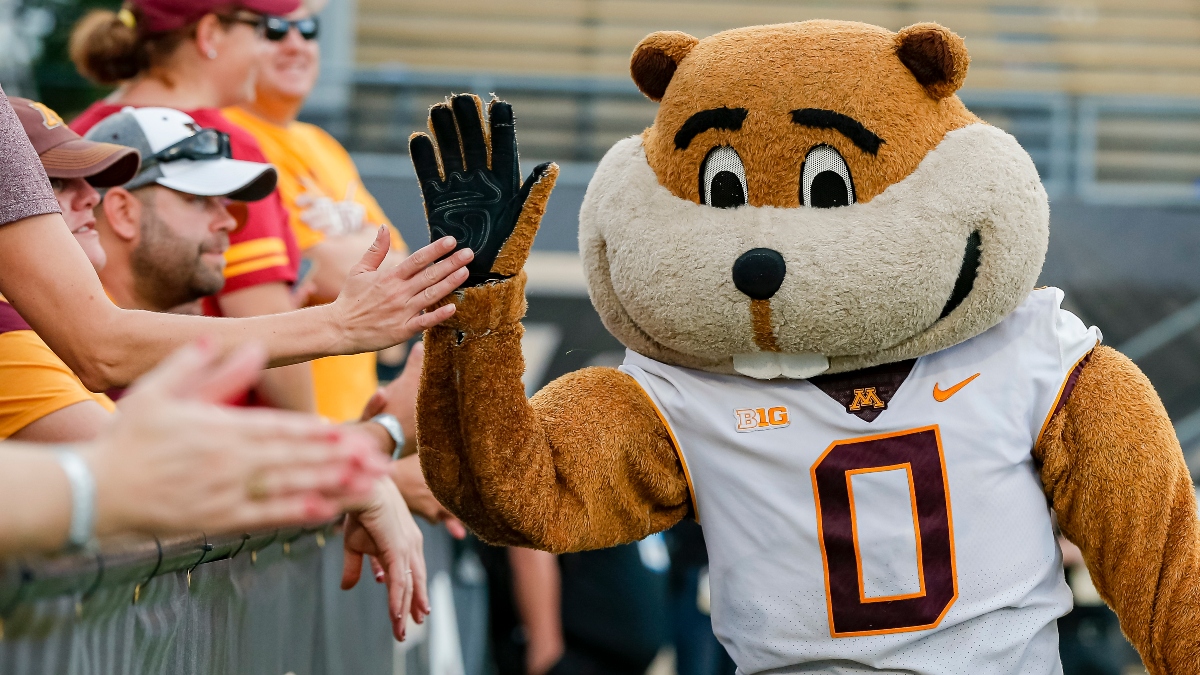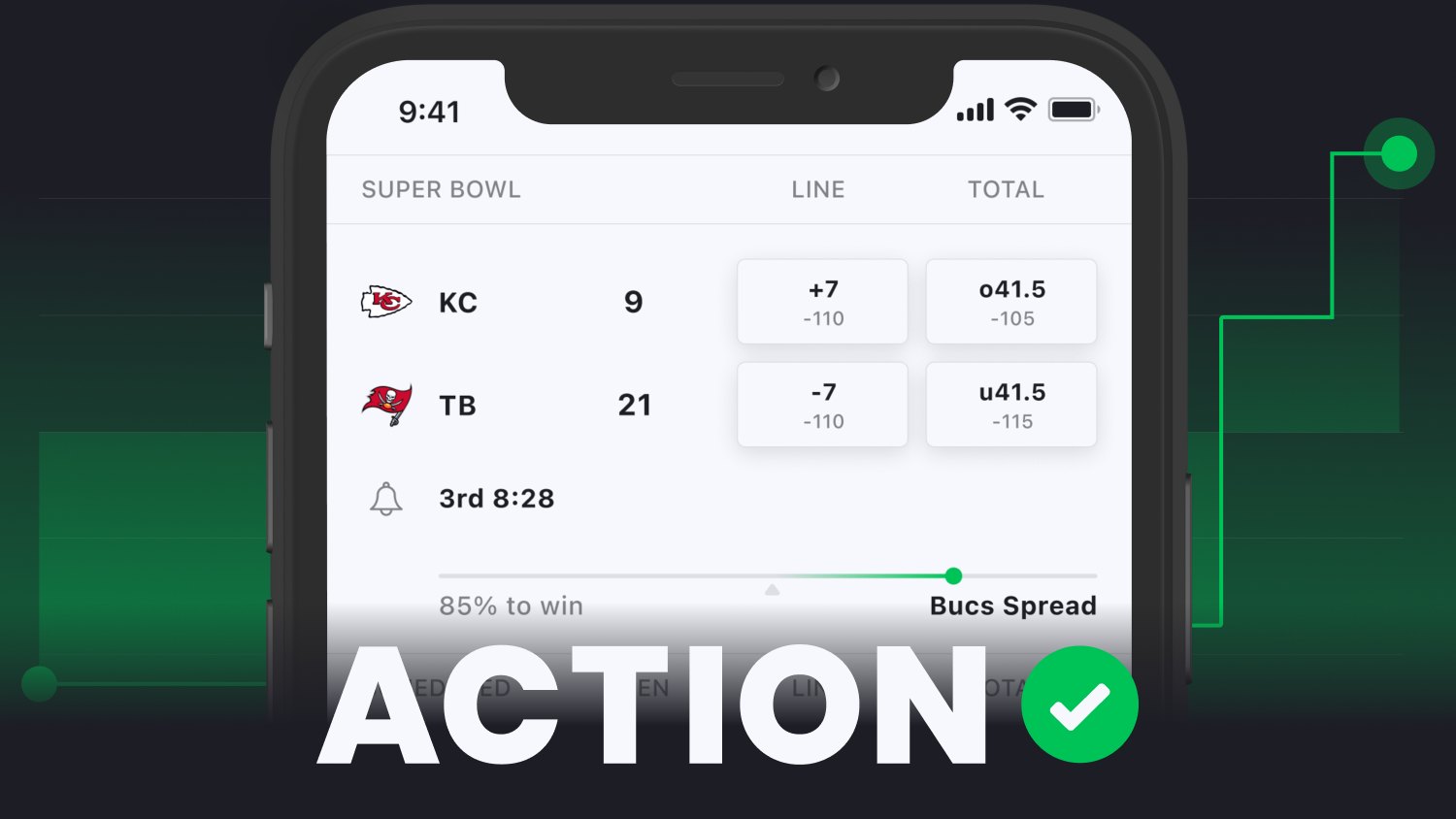Sports Betting Legalization: Best Bets for Next States To Legalize
Michael Hickey/Getty Images. Pictured: University of Minnesota’s mascot.
Maine surprised last week when it became the first state to pass a legal sports betting bill in 2022, which now awaits Gov. Janet Mills' approval.
A handful of other states are close behind, but with their legislative sessions winding down, lawmakers are quickly running out of time to resolve differences around legalizing.
To keep up with their fast-changing outlooks, we compiled this list of states most likely to legalize next, in order of likelihood.
Missouri
Missouri is likely the surest state out of this bunch to legalize sports betting this year. Once it does, it's the surest to get it quickly up and running.
Primary Bill Pending: HB 2502
| Legalizes | Online and retail sports betting |
| Operators | Casinos and pro sports teams |
| Max Number of Sportsbooks | 39 |
| Tax rate | 8-25% |
| Next Action | Senate vote TBA |
| Last Day of Session | May 13 |
Two bills passed by the House March 24 are making their way to the Senate floor, the final step before heading to Gov. Mike Parson (D), who's remained neutral on sports betting but called it inevitable.
In five years of failed legislation, it's the farthest a sports betting bill has made it through Missouri's legislature. But the Senate has its own version, which bill sponsors estimate could raise $140 million more a year under a higher tax.
Before it can become law both chambers will have to agree on a tax rate and pass identical versions before May 13, the last day of Missouri's legislative session.
Regulation would fall under the Missouri Gaming Commission, which has overseen the state's riverboat casinos, charitable bingo, and fantasy sports contests since the early 90's. Already having an established regulatory body in place positions Missouri well to go live with sports betting quickly, once lawmakers act.
Kansas
If I wrote this last month, Kansas would have been my best bet to be the next state to legalize.
Even after an unexpected amendment from House lawmakers, I'm still bullish on Kansas. Its governor and legislature both want sports betting. Plus, its lawmakers have been so vocal about beating out Missouri, it's hard to picture them bowing out now.
Primary bill pending: SB 84
| Legalizes | Online and retail sports betting |
| Operators | Casinos and Tribes |
| Max Number of Sportsbooks | 12+ |
| Expected Tax Rate | 8-20% for online, 5.5-14% for retail |
| Next Action | Senate Conference Committee |
| Last Day of Session | May 20 |
A House Conference Committee amendment from earlier in April shifts funding, so that 80% of tax revenue from sports betting goes to attracting a new professional sports team. Industry observers have pegged it as a ploy to lure the Kansas City Chiefs, which have openly mulled relocating if Missouri doesn't foot the bill for a new stadium.
Before the change a disagreement on tax rates seemed to be the only major discrepancy between House and Senate lawmakers, just like in Missouri. But even that felt like more of a bump in the road than a road block; both sides need only to move about six percentage points from their desired rates.
A Senate Conference Committee will need to sign off on the same bill by May 20 in order to send it to the governor, though it's unclear how they'll view the House's amendment. The legislature is back this week after a month of recess, and that vote could come at any time.
Minnesota
Minnesota's sports betting bill hasn't progressed as far or as fast as these other ones, but it's probably been the most steady of the bunch.
Primary Bill Pending: HF 778
| Legalizes | Online and retail sports betting |
| Operators | Tribes |
| Max Number of Sportsbooks | TBD |
| Tax Rate | TBD |
| Next Action | House Ways & Means Committee hearing |
| Last Day of Session | May 23 |
Previous attempts to legalize fell short largely due to opposition from the state's native tribes, which have a stronghold on gambling in the state. Now, the very reason House lawmakers have been able to rally tribal support could be what averts their Senate counterparts from getting on board.
The battle for Minnesota sports betting has been less about resistance to gambling and all about control.
The version awaiting its fifth committee hearing in the House would give the state's 11 tribes a monopoly on sports betting. It has progressed relatively smoothly, despite the amount of hearings its received, but will likely be met with resistance in the Senate, which has been resistant to gaming expansion in the past, and is weighing a separate bill to give racetracks and pro sports teams a piece of the action.
Like they've done in the past, the state's tribes would likely pull out all stops to kill any bill that doesn't give them 100% control.
Massachusetts
One of Commonwealth's sports betting bills could be voted on in the Senate as early as this week, however it contains a laundry list of glaring differences from the House's proposal, making its passage unlikely.
Primary bills pending: S 269G, H 3993
| Legalizes | Online and retail sports betting |
| Operators | Casinos, race tracks |
| Max Number of Sportsbooks | 8 |
| Expected Tax Rate | 15-35% for online, 12.5-20% for retail |
| Next Action | Senate Vote April 28 |
| Last Day of Session | July 31 |
The Senate's bill would tax sports betting more than double the rate desired by House lawmakers, though thanks to a ban on all collegiate betting (not just on Massachusetts colleges), it would raise about $25 million less annually in taxes, according to a fiscal analysis.
It would also prohibit bettors from funding online accounts with credit cards or from using credit cards to bet in person, which Senate leadership has said could help prevent impulsive bettors from racking up debt. The Senate bill also includes a plethora of advertising restrictions that operators probably won't like, like ad bans during live sports broadcasts.
Gov. Charlie Barker (D) has been supportive of sports betting for years, though for him to sign a bill House and Senate lawmakers must agree on the same proposal by July 31, the last day of Massachusetts' legislative session.
If lawmakers do end up coming to an agreement in time, Massachusetts, like Missouri above, is also positioned to get a launch up and running quickly.
How would you rate this article?


